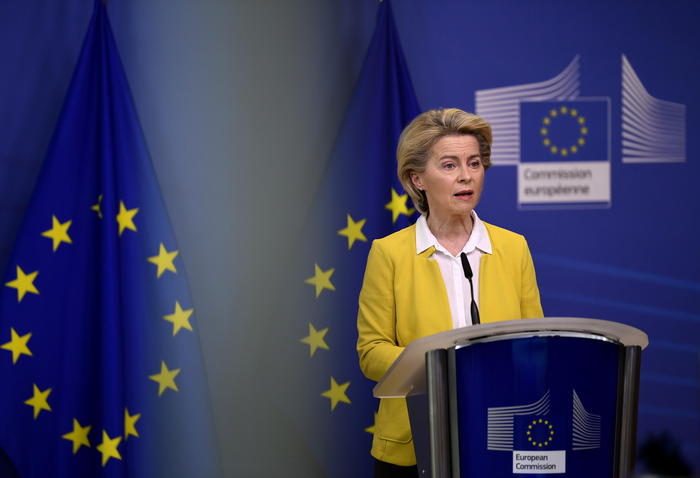BRUSSELS - Brussels sets the bar for the use of artificial intelligence in Europe:
all systems deemed "a clear threat to security, livelihoods and people's rights", such as "social score" systems, will be banned, while high-risk applications "will be subject to strict obligations before they can be placed on the market"
.
The EU Commission writes this in its bill, the first on AI, unveiled today.
According to the document, companies that do not comply with EU regulations could face fines of up to 6% of their turnover.
The use of biometric identification systems, such as facial recognition, in public spaces "is prohibited in principle".
The exceptions allowed concern the fight against terrorism, the protection of security or the search for a missing child.
This is stated in the draft law on AI presented by the EU Commission
"All biometric identification systems are considered high-risk and subject to strict requirements", underlines the EU executive, specifying that, in the event of an exception, their use "is subject to the authorization of a judicial or independent body and to appropriate limits of time and space ".
"Today we are presenting new rules for reliable artificial intelligence.
They set high standards based on different levels of risk.
Artificial intelligence is a fantastic opportunity for Europe. And citizens deserve technologies they can trust." The
president of the EU Commission, Ursula von der Leyen,
writes on Twitter
,
commenting on the new proposal.
"There is no room for mass surveillance in our society and that is why, in our proposal, the use of biometric identification in public spaces" with systems such as facial recognition. This was stated by the
vice president of the EU Commission, Margrethe Vestager
, presenting the rules. "We are proposing very narrow, strictly defined, limited and regulated exemptions," Vestager explained, recalling that the use of the technology could be possible in cases such as police searches for a lost child.
For artificial intelligence, "trust is a must"
, added Vestager, highlighting that the EU's goal is to pave the way for "ethical technology". For this reason, he said, "our rules will intervene where strictly necessary: when the safety and fundamental rights of EU citizens are at stake".
Companies that want to use artificial intelligence applications should "come to the EU" because they will know "what to do, how to do it" and will have "partners" to work with. This was said by the
European Commissioner for the Internal Market, Thierry Breton
, about the proposed law on AI, specifying that
Europe is the "first continent to give guidelines" on the subject
, defining what is allowed and what is not.
"This is a risk-based approach and what is prohibited is very limited," said Breton, stressing that Brussels, with the proposed rules, intends to act as
a global hub of excellence in this field
, while ensuring that AI complies. "our values and our rules, exploiting their potential for industrial use".
Those who want to use AI in the Union will arrive on the Continent with "the largest amount of industrial data in the world for the next ten years" and will be given "guidelines, tools and infrastructures" to operate, the Commissioner pointed out, adding that "artificial intelligence is a means, not an end".

